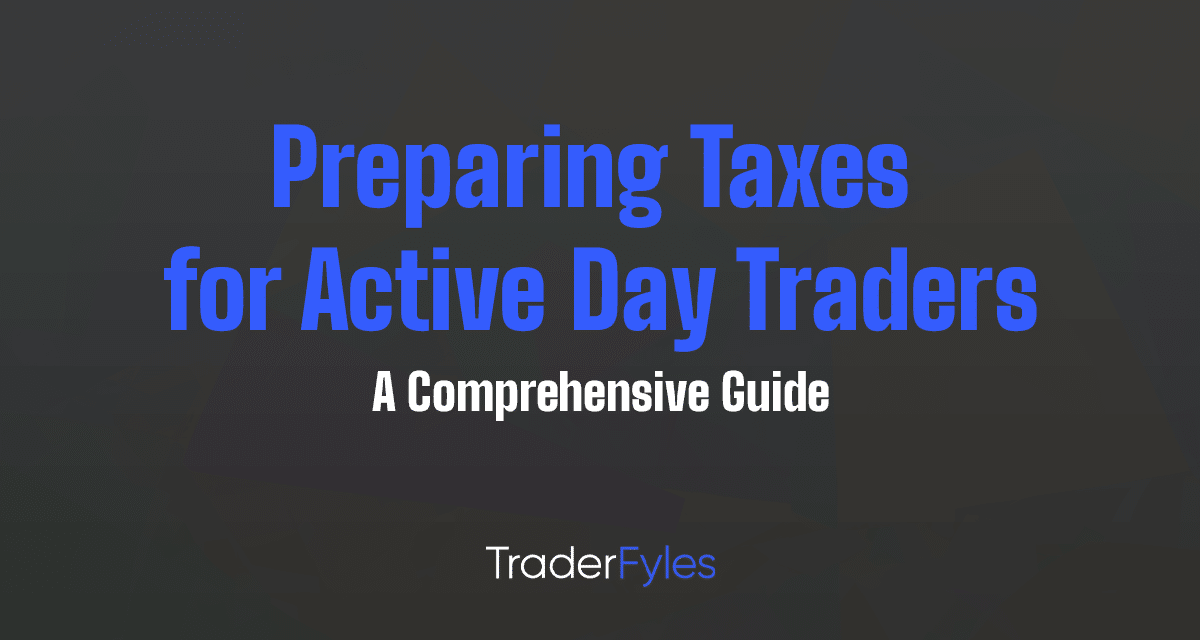Active day traders play an essential role in the market’s dynamism, carrying out frequent trades that respond to short-term price movements. This daily financial juggling act can, however, make tax season a complex period for these professionals. This article aims to simplify the process, outlining what an active day trader needs to do when preparing their taxes.
Understanding the Income Tax Categories
Before diving into the specifics of form 1099-B and other tax-related documents, it’s crucial to understand how the Internal Revenue Service (IRS) categorizes income from trading. Broadly, these fall into three categories:
- Investment Income: This applies to casual investors who trade occasionally. The capital gains tax applies to their earnings.
- Business Income: This applies to active day traders who meet certain criteria, as per the IRS’s “trader tax status”. Profits are subject to ordinary income tax rates.
- Mixed Income: A combination of investment and business income. This applies if you have multiple accounts, some for day trading and others for long-term investment.
The above is a simplified categorization. Specific circumstances can lead to variations in tax treatment. It’s recommended to consult a tax professional to understand your specific tax obligations.
Form 1099-B: Proceeds from Broker and Barter Exchange
Form 1099-B is a vital part of the tax process for day traders. Your broker generates it and provides details about your trades during the tax year, including the proceeds from the sale of securities, commodities, or currency. This form will detail:
- Description of property (e.g., 100 shares of XYZ Corp.)
- Date acquired and sold
- Proceeds from the sale (minus commissions and fees)
- Cost or other basis
The information from your 1099-B forms will be used to fill out Schedule D and Form 8949, where you’ll calculate your net capital gains or losses.
Trader Tax Status (TTS) and Mark-to-Market (MTM)
Traders who qualify for the Trader Tax Status (TTS) enjoy certain benefits, such as the ability to deduct trading-related expenses and home-office deductions. However, one key advantage is the opportunity to elect Section 475(f), also known as the Mark-to-Market (MTM) accounting method.
MTM allows traders to treat their gains and losses as ordinary income, potentially reducing the impact of the $3,000 capital loss limitation that applies to investors. It also exempts traders from wash-sale rules. The election for MTM should be made by the original due date (not including extensions) of the tax return for the year prior to the year for which the election becomes effective.
Keeping Impeccable Records
Day traders make a significant number of trades throughout the year, and tracking these is vital for accurate tax preparation. Good record-keeping habits involve tracking:
- Each individual transaction
- The cost basis
- Holding periods
- Sales proceeds
Modern trading platforms usually keep these records, but it’s essential to have a backup. Also, make sure you keep a record of all related expenses that you plan to deduct if you qualify for TTS.
Use of Tax Software or Professional Services
Navigating the complexities of day trading taxes can be significantly simplified by leveraging the right tax software or professional services. TraderFyles, a standout tax software developed by tax professional Brian Rivera of TraderTaxCPA, is specifically tailored to handle everything a trader needs to streamline their tax filing process.
TraderFyles is engineered with unique features to make tax season less daunting for active day traders. It takes care of generating essential forms such as:
- Form 8949 (Sales and Other Dispositions of Capital Assets)
- Schedule D (Capital Gains and Losses)
- Form 4797 (Sales of Business Property)
All of which are pivotal to accurate tax filings for day traders.
One of the exceptional features of TraderFyles is its advanced handling of wash sales. This thorny issue often perplexes traders, given its intricate rules and potential tax implications. TraderFyles, however, simplifies this process, helping traders to correctly calculate and report wash sales.
1099-B Match™
Furthermore, TraderFyles offers the exclusive 1099-B Match™ service. This innovative tool allows traders to generate necessary forms directly from the 1099-B sent by their broker, ensuring an accurate match and eliminating any potential discrepancies. This not only simplifies the tax filing process but also fosters peace of mind, knowing that your forms are accurately and efficiently populated with the right data.
Audit My Broker™
But the innovation doesn’t stop there. TraderFyles’ Audit My Broker feature adds an extra layer of financial security by double-checking your broker’s math. This means you can confidently confirm that you’re paying taxes on the correct capital gains, helping you avoid any potential oversights or costly mistakes.
TraderFyles’ combination of advanced features, user-friendly interface, and precise calculations, backed by the tax expertise of Brian Rivera, make it a compelling choice for active day traders. This tax season, give TraderFyles a try and experience a more streamlined, less stressful, and more accurate tax filing process.
Tax preparation shouldn’t be a guessing game. Let TraderFyles turn it into a simple, efficient process. Subscribe today and take the first step towards hassle-free tax filings for your day trading business.
Tax professionals, particularly those specializing in day trading taxes, can provide guidance and ensure you are taking advantage of all the deductions and benefits applicable to your situation.
Conclusion
Tax preparation for active day traders is not a simple task, but it is an integral part of their financial lives. With the right knowledge and resources, tax season can be navigated efficiently. Whether it’s understanding the data in 1099-Bs, maintaining rigorous record-keeping habits, or leveraging the expertise of tax professionals, the preparation can be managed effectively to stay compliant and optimize your tax obligations. Always remember, when in doubt, consult with a tax professional or CPA experienced with day trading to make sure you’re following all applicable tax laws and taking advantage of any possible deductions.
